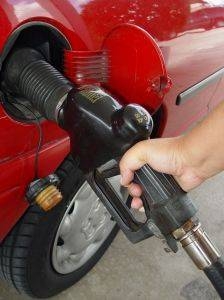
Many attempts to justify the efficiency of ethanol versus gasoline have been attempted since this new fuel has been instituted and used by new models on the market. Now that there are some of the vehicles available that are actually at an attainable price for the consumer, (flex fuel vehicles tend to cost more the normal gasoline only models), we are able to compare these two in real world situations. In a study using a 2007 Tahoe it was shown that when fueled with gasoline, the vehicle was able to get 9 miles per gallon in the city limits and 21 on the highway. This compared to the mere 7 mpg in the city and 15 on the highway for ethanol which is also known as E85. These statistics tend to favor gasoline as far as mileage comparison goes and during a 150 mile trip E85 (ethanol) averaged 13 mpg while gasoline got 18 mpg.
Most people do not know that the type of fuel used in your vehicle can actually change the acceleration and performance. This too is the case with ethanol versus gasoline. Using the same vehicle in a test conducted multiple times, it was shown that ethanol gave a slight advantage to acceleration rather than gasoline. The 30 miles per hour mark was hit a tenth of a second sooner with ethanol using the same model and make of vehicle. Although ethanol had an advantage in this category it was often very minute. The advantage given in acceleration by E85 was not enough to make a distinct difference unless using it for the purposes of racing (which is not what most consumers are doing). Currently ethanol and its value versus gasoline are still being discussed and evaluated, each having its positives in separate categories.
America is striving to break free from it's addiction on foreign oil as well as lessen the amount of pollution emitted from driving. Of all the categories that gasoline and ethanol can be compared, this is where ethanol shines the brightest. Studies have shown that ethanol (E85) emits at least 10 to 15 percent less greenhouse gasses than gasoline. With the current status of the rising temperatures of the planet and focus and concerns to be more "green," this is a very important and encouraging victory for ethanol. There have been some controversies and variances on the efficiency and finds of ethanol versus gasoline by researchers. Some findings suggest that ethanol is not widely available enough to be efficient for the consumer without having to substitute gasoline, while others say that widespread use will cause produce shortages. Ethanol's biggest producers are corn-growing farmers who use it to produce this fuel. Scientists and researchers say that other crops and sources can be grown and harvested for ethanol production that may be more efficient, but this has yet to be performed.